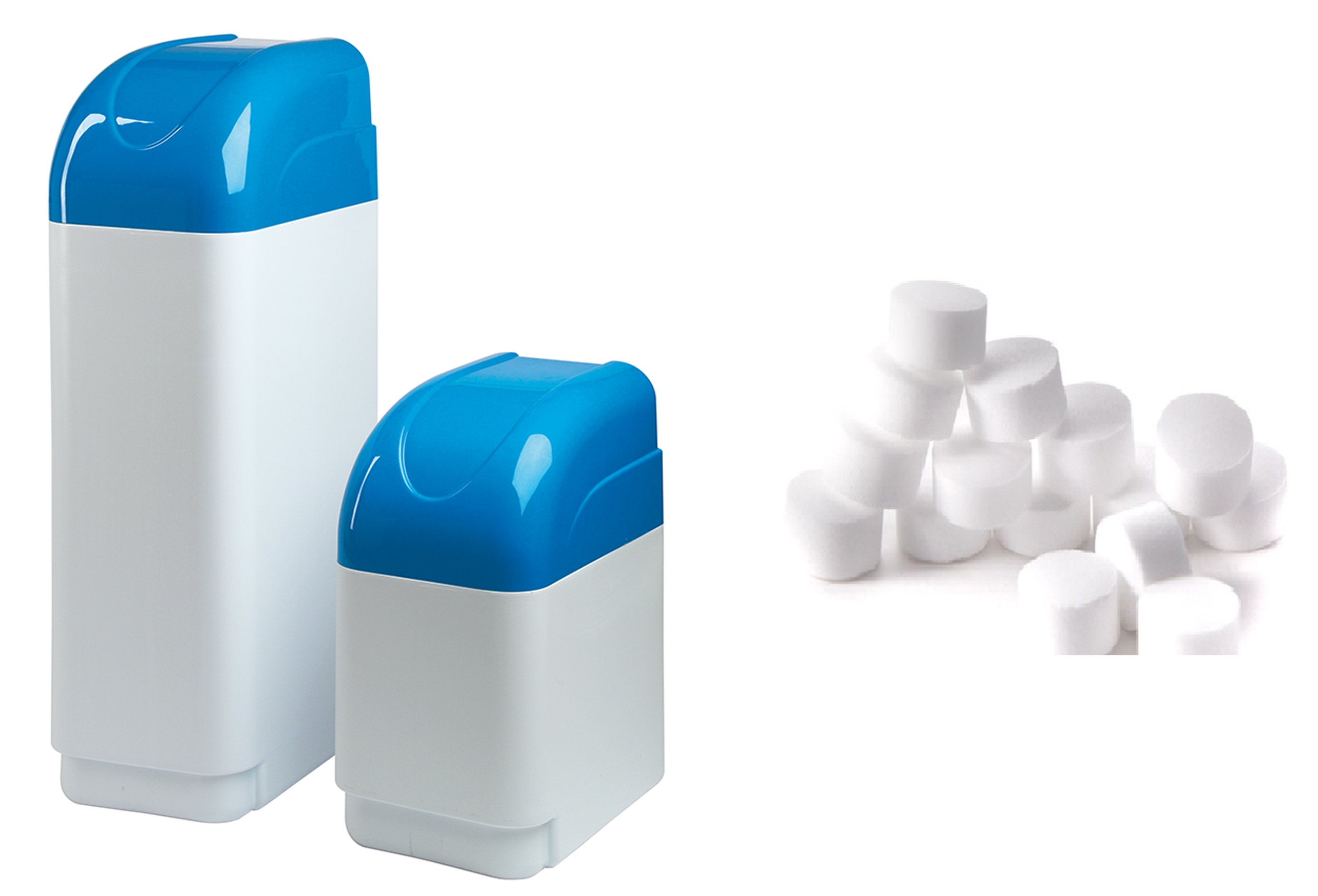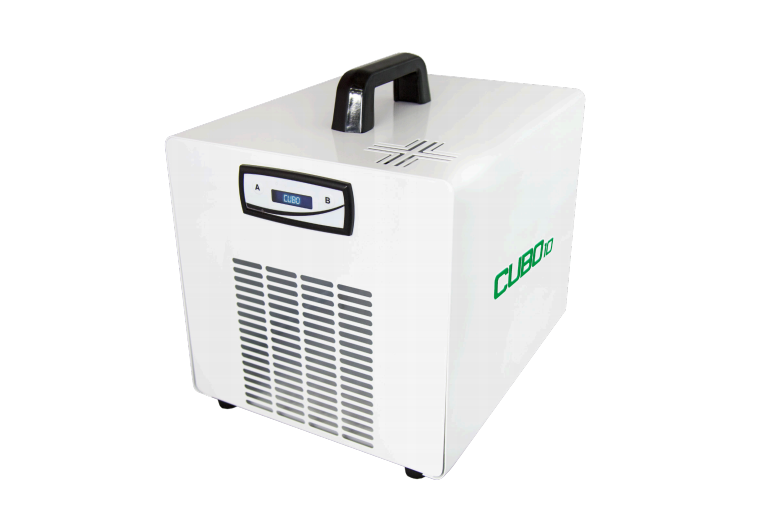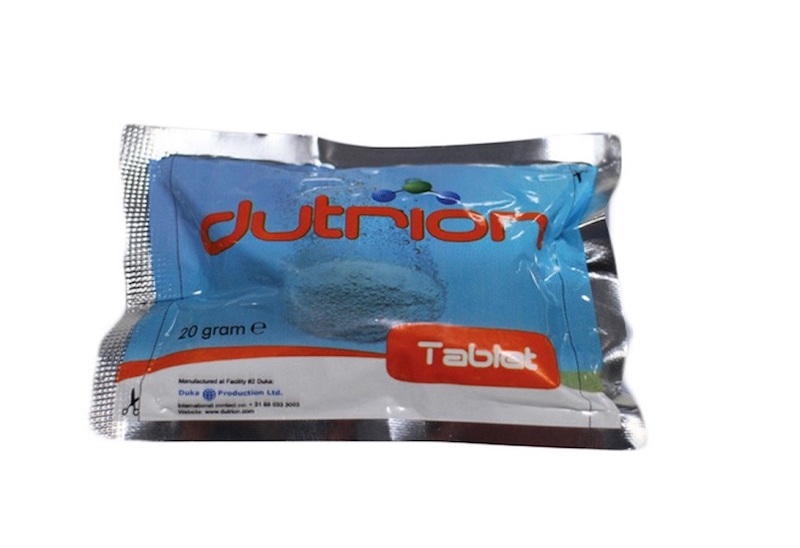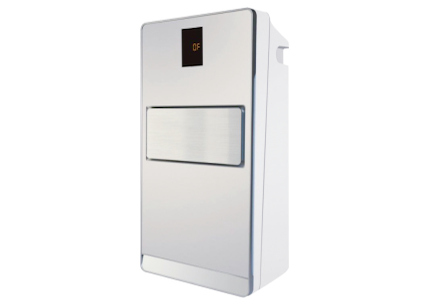The Cabinet is a kind of softener for home softening needs, as well as for the needs of smaller commercial or industrial systems that require water to be softened. The device is compact because the softener itself is placed in a container that simultaneously serves as a tableting salt reservoir for regeneration, which significantly reduces the space it occupies. Work and regeneration of the softener are fully automated under the control of the automatic control valve. Regeneration can be programmed in time or volume after softening of certain amount of water. The choice of regeneration mode is done after knowing the circumstances in which the softener will work and the input of the hard water. Maintenance is minimized and it is related to control of tableted salt amount with occasional salt addition.
Characteristics:
-
- Electronic processor
-
- Fully automated regeneration process
-
- 8 regeneration phases
-
- salt container inside the casing
-
- Time and volume version
-
- An effective ionic resin
-
- Hardness of softened water <0.2dH
Installation Requirements: Minimum 2 bars pressure, max pressure 6.00 bars (If the pressure is higher, install a reduction valve);
Connector: ¾ “INPUT / OUTPUT;
Water softener or Ionic exchanger is a device that allows water softening in the Ionian process. The softener can be a casing filled with resin. Water simply flows through the resin and softens it.\r\n\r\nSoftened water is a product that is produced by so-called Ionian change.
ADVANTAGES OF MIXED WATERS ARE CONCRETE AND IMMEDIATELY VISIBLE:
-
- In the catering industry no need to wipe glasses after drying because there is no limescale.
-
- In the bakeries there is no limescale on the tubes (tubes around the heaters with small holes spraying the heater and creating a steam that gives the required humidity to the dough), otherwise the production must be stopped from time to time and the tubes should be cleaned with chemical means.
-
- In boiler rooms there is no accumulation of limescale on heaters and heat exchangers, which necessarily leads to an increase in energy consumption, as the heater is coated with a limescale.
-
- In hotels that have their own laundry much less detergent is used for a better washing effect.
-
- Less detergent is used in the car wash, and the vehicles do not have to be wiped with a jelly cloth because stains do not remain.
-
- In households and all facilities with boilers, dishwashers, laundry machines the lifespan of all appliances that are in contact with water is extended. We need less time and products for cleaning.
-
- Hospitals reduce energy costs and avoid problems with the maintenance of appliances and medical equipment. This list can be extended with many other dedicated industries (laboratories, glass manufacturing, beer and juice production, CD production, plastics, wellness centers …). There is almost no area where the advantages of softened water are not necessary.
When water passes through the resin in the softener it starts the process of Ionic change whereby ionic calcium changes with sodium ions, which does not damage the installations and the human body. The mass automatically regenerates after saturation every couple of days, and then the accumulated limescale passes into the sewer or other predetermined drainage. Regular maintenance is, in most cases, not necessary as the devices are automated, only addition of tableted salt is a mandatory . Salt consumption depends on water consumption and inlet water hardness, but this cost is relative to the benefits it brings. It is not a regular salt but a tableted salt with a purity of 99.99%. It is packed in bags of 25 kg. In case of a request or need for regular or periodic service, the Adepto Company Service is available for a short period of time throughout BiH. Adepto Company is also the importer of the highest quality salt with hardness and quality certificates.
Tableted salt
For the regeneration of resin, especially those for neutral exchange it is used is used in the form of tablet the tableted salt i.e. very pure industrially processed sodium chloride. Water softeners work on the principle of ion exchange-process in which hard water flows through the filling of ionic mass (resin) where starts the exchange of calcium and magnesium ions (which cause water hardness) from the raw water, with sodium ions from the salt solution in the softener which is saturated with it. After a certain flow of water, the resins lose their softening capacity. A solution of tableted salt (NaCl) is used for the regeneration of the spent ion mass that is automatically withdrawn from the preparatory tank.
Adepto Company offers tableted salt of high quality in a 25 kg package.


 BiH
BiH



